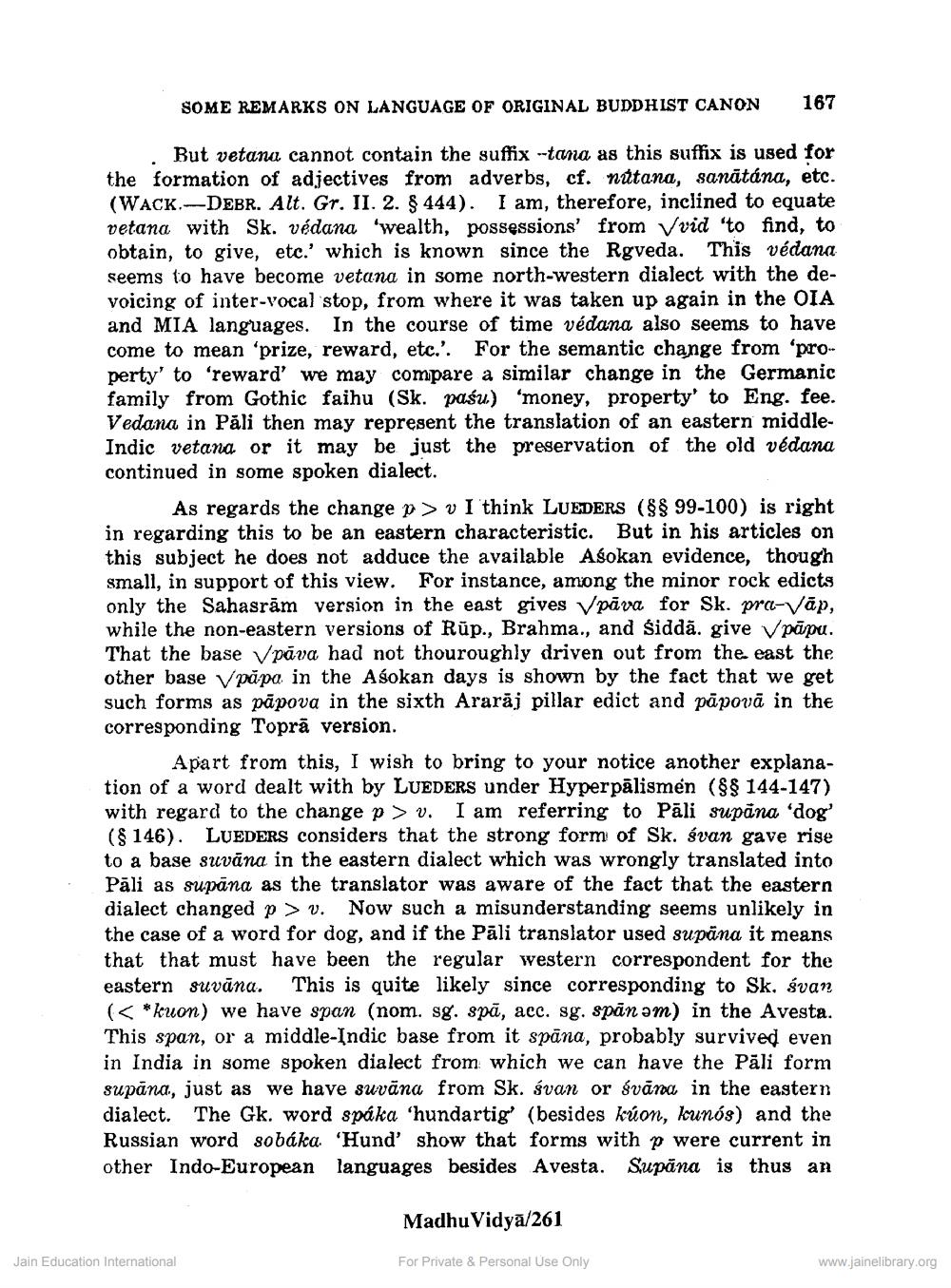________________
SOME REMARKS ON LANGUAGE OF ORIGINAL BUDDHIST CANON
167
But vetana cannot contain the suffix -tana as this suffix is used for the formation of adjectives from adverbs, cf. nutana, sanātána, etc. (WACK.---DEBR. Alt. Gr. II. 2. $ 444). I am, therefore, inclined to equate vetana with Sk. védana 'wealth, possessions' from Vvid 'to find, to obtain, to give, etc.' which is known since the Rgveda. This védana seems to have become vetana in some north-western dialect with the devoicing of inter-vocal stop, from where it was taken up again in the OIA and MIA languages. In the course of time védana also seems to have come to mean 'prize, reward, etc.'. For the semantic change from 'property' to 'reward' we may compare a similar change in the Germanic family from Gothic faihu (Sk. paśu) 'money, property to Eng. fee. Vedana in Păli then may represent the translation of an eastern middleIndic vetana or it may be just the preservation of the old védana continued in some spoken dialect.
As regards the change p > I think LUEDERS (88 99-100) is right in regarding this to be an eastern characteristic. But in his articles on this subject he does not adduce the available Asokan evidence, though small, in support of this view. For instance, among the minor rock edicts only the Sahasrām version in the east gives V pāva for Sk. pra-vāp, while the non-eastern versions of Rūp., Brahma., and siddā. give v pārpu. That the base v pāva had not thouroughly driven out from the east the other base v păpa in the Asokan days is shown by the fact that we get such forms as pāpova in the sixth Ararāj pillar edict and pāpovā in the corresponding Toprā version.
Apart from this, I wish to bring to your notice another explanation of a word dealt with by LUEDERS under Hyperpālismen (8$ 144-147) with regard to the change p > v. I am referring to Pāli supána dog ($ 146). LUEDERS considers that the strong form of Sk. śvan gave rise to a base suvāna in the eastern dialect which was wrongly translated into Pāli as supana as the translator was aware of the fact that the eastern dialect changed p > v. Now such a misunderstanding seems unlikely in the case of a word for dog, and if the Pāli translator used supāna it means that that must have been the regular western correspondent for the eastern suvāna. This is quite likely since corresponding to Sk, śvan ( *kuon) we have span (nom. sg. spā, acc. sg. spān əm) in the Avesta. This span, or a middle-Indic base from it spāna, probably survived even in India in some spoken dialect from which we can have the Pāli form supāna, just as we have suvāna from Sk. śvan or svāra in the eastern dialect. The Gk, word spáka 'hundartig' (besides kúon, kunós) and the Russian word sobáka. 'Hund' show that forms with p were current in other Indo-European languages besides Avesta. Supāna is thus an
Madhu Vidyā/261
Jain Education International
For Private & Personal Use Only
www.jainelibrary.org




